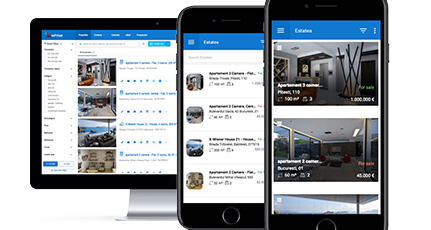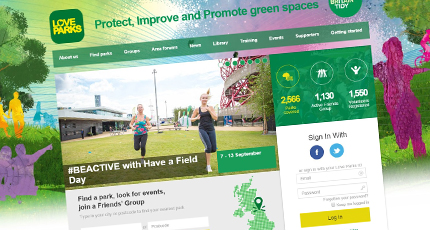Technology in real estate is changing fast. And so are the parties’ expectations involved in a real estate cycle (clients, brokers, appraisers, agents, agencies). The leap from traditional transactions to digital mindset and actions in the real estate industry becomes inevitable from a month to another. So, two main questions dominate those-days settings agenda of both clients and real estate professionals:
- what changes come next?
- how can real estate businesses adapt fast?
Disruptive tech innovation trends that redesign the priorities from the real estate industry
- using big data and artificial intelligence to simplify the real estate processes by automating time-consuming tasks, helping agents to get things done faster, and offering clients access to smart tools for better decisions and transactions;
- AI and machine learning for tuning data into actionable tools (smart matchings preferences with offers, customized filters, chatbots, etc);
- covering geographical diversity through tech hubs;
- virtual reality for providing complete experiences in the pre-sale phase;
- IoT to help homebuyers to understand better the condition of a house;
- blockchain and online payments
- safer homes with 5G technologies.
Top key-questions when you evaluate how to invest in technology for your real estate business
- Which is the best way to manage data in a real estate business (extract, filter, distribute, etc.) ?
- What type of values your business data should provide?
- How to make documents transfers, online signatures, and data transfers risk-free and fully compatible?
- What digital business models should you develop? And how can you get scalability and a virtual performance for your real estate business?
- How can you educate your business stakeholders and shareholders to make the leap from traditional thinking to digital approaches?
- How to develop an innovative culture for your business?
- What PROPtech (properties technology), CREtech (commercial real estate technology), REtech (real estate technology), and/or FINtech (financial technology) solutions should you develop to keep your real estate business on track?
- What digital products need continuous development and which ones should be deprioritized?
Check out our portfolio to see samples of successful projects developed by our skilled software developers (dedicated teams)
SEE THE PORTFOLIOThe 5 most important technologies for real estate to consider for keeping your business relevant for the next years
Property Management (tenant communication, payments, facilities management)
Property management solutions refer to digital apps that are developed either in complex forms (e.g., all-in-one platforms) or in simple forms (e.g., mobile apps). Their roles are usually about:
- efficient control over vacancy, rent, and maintenance cycle;
- managing documents and communication between parties through digital features;
- remotely tenant leasing and screening (from the mobile phone);
- automate recurring payments;
- etc.
Brokers and Agents Tools
- Digital tools for accurate product evaluation are more sophisticated techniques that help agents and brokers determine the value of a new and/or unique product.
- All-in-one platforms – that bring customers, agents, and real estate agencies in one place and offer them all the tools to match searched properties with offers and easily close transactions.
- Smart transactional tools – from e-payments to document transfers and signatures in digital format.
- Bringing diverse and disparate data in one place and extract valuable insights – at the macro and micro level (for both agents and business owners)
- Proactive tools (smart apps) to respond to customers’ needs:
- matching search criteria with real estate offers;
- faster transactions – simplified processes through automation and transfer of data and documents in digital format;
- etc.

- Digitalization of showings – complete experience through real-time videos, virtual reality, augmented reality, and 360-degree photography;
- One-click tools for setting appointments, e.g., via chat;
- User-friendly and devices-friendly properties tours – adapting to customer’s resources without affecting the property’s showings quality (e.g., tours available directly from the smartphone) inclusive automated self-touring technology);
- Online integration of diverse real estate activities – from e-mail notifications to documents transfer, fee payments, etc.
- Personalized experiences – Improved customer relationships through digital tools that allow agents to have complete tracking and overview of their clients/potential clients’ behavior and follow-up them with personalized messages.
Search and Multiple Listing Services (MLS) – online software developed for brokers, agents, and appraisers that integrates intelligent search, sorting functionalities, and dynamic tools for comparing properties based on user specifications selected from pre-defined parameters.
Things you may want to know about MLS:
- it’s an online software that acts as a database (for a specific region) that provides key-details on real estate products (homes, properties, lands, etc);
- brokers, agents, and appraisers use it for defining contractual terms for an offer, communicate information (required by the appraisers for instance), and for simplifying the matching process (what potential buyers expect reported to the existing offers on the market);
- it’s considered a helpful tool for keeping up with the market trends and staying ahead of the competition;
- the access to the MLS is granted to licensed professionals (brokers, agents, and appraisers) but can also be provided to other types of users under the “MLS Assistant Access” umbrella.
CRM solutions to increase efficiency from a customer relationship management perspective.
For providing you with a clear picture of what a CRM solution can do for a real estate business, here is an example of a project developed for one of our clients.
OUR CLIENT
Our client is a leading software company from Belgium, focused on real estate and our collaboration with them started in 2004, making it our longest standing partnership.

The company’s main product is a Customer Relationship Management software, designed for the real estate sector, that we built for them and continued to improve through an ongoing development process, where together with the client we discuss workflows, do the necessary planning, identify ways to improve processes and add useful features.
CLIENT’S NEED
Our client needed to replace a desktop solution for real estate companies with a web-based and mobile-first solution while migrating all of the data.
Technology stack
for backend (C#)
API:
ASP.NET Web API, Nancy FX
Caching:
Memory cache, Redis
Messaging:
RabbitMQ, SignalR
Monitoring:
PRTG
Deployment:
Octopus
Task/Scheduling:
Quartz.NET
Technology stack front-end (Javascript / HTML5):
HTML5, Bootstrap
TypeScript, KnockoutJS, jQuery
FullCalendar, eCharts, Google Places API
Bootstrap Table, Handlebars
Leaflet, PNotify, Select2, SweetAlert
COMPLETE PROJECT TEAM
The client requested a complete project team, including backend developers, front-end developers, designers, and a UX specialist.
1
UX Designer
3
Front-End
6
Back-End
1
Project Manager
THE SOLUTION
The delivered solution now integrates:
- The delivered solution now integrates:
- email module;
- BI dashboard.
Data & Analytics – transforming big data and data coming from multiple sources into valuable assets.
From charts to datasheets, reports, and push notifications – valuable data can reach the Admin in various forms. Data & Analytics solutions can be developed as independent apps (that synchronize and extract information from multiple sources) or as a part of a complex platform.

Looking for a professional team for your next software development project?
Count on our 130 skilled developers to turn your ideas into functional solutions.




